Social media has emerged as an integral part of our lives, and platforms like LinkedIn, Twitter, and Facebook provide users with spaces for communication, information sharing, and education. In recent times, these platforms have also become useful tools for professional growth that offer a variety of benefits for those looking to advance their careers. The advantages of social media for professionals can include opportunities for networking, skills improvement, personal branding improvement, as well as access to job opportunities.
They have the potential to influence a person’s career path. However, using social media to advance your career is not without its challenges and requires careful thought to maximize the effectiveness of these platforms. Users need to avoid issues and come up with strategies to tap into the full potential of these tools in their work.
The Benefits of Using Social Media for Professional Development
Building a Global Network
One of the major advantages of using social networks to enhance professional growth is the possibility of connecting with a broad network of professionals from all over the globe.
Platforms such as LinkedIn allow people to develop and keep professional connections to exchange ideas, share information, and seek out mentorship. This network opens doors to opportunities for career advancement as well as collaborations and knowledge sharing.
Staying Ahead in Your Field
Social media can help professionals keep up-to-date with the latest trends in their field, news, the latest developments, and best practices, giving them an ongoing learning experience that will enhance their knowledge and knowledge.
Professionals share their valuable knowledge as well as articles and other resources on social media sites like Twitter and LinkedIn, providing a place for ongoing learning and improvement.
Establishing a Strong Professional Brand
The ability to gain access to a variety of perspectives and information can allow individuals to keep up-to-date in their field and adjust to the constantly changing demands of the modern professional. Additionally, social media could also be used as a way for people to display their projects, work, and accomplishments, which allows them to establish a solid professional image and build credibility in their field.
The Challenges of Using Social Media for Professional Development
While social media can provide a myriad of advantages for professional growth, it also has its own set of challenges that professionals must face. One of the biggest problems is the risk of excessive information and disorientation. With the constant flow of information and updates on social media, professionals may be unable to cut out the noise and focus on the learning opportunities.
How Social Media Can Enhance Networking and Career Opportunities
Social media has transformed how professionals interact with each other and search for career opportunities. Platforms such as LinkedIn are now essential instruments for people to network with peers in their field as well as potential employers and recruiters. The ability to display one’s capabilities, expertise, and accomplishments through a public platform that is publicplatform allows professionals to be sought-after for new job opportunities and collaborate.
Furthermore, social media can provide the opportunity to join specific industry groups and communities and expand their network and exposure to job opportunities. In addition, social media has the potential to improve career prospects through its ability to enhance personal branding and thought leadership. Through sharing regularly valuable information as well as participating in discussions within the industry and displaying their expertise, professionals can be positioned as thought-leaders in their area of expertise.
The Role of Social Media in Skill Building and Continuous Learning
Social media is an effective platform to build skills and ongoing learning, by giving access to a variety of information and sharing opportunities. Professionals can follow the leaders in their field as well as join relevant groups, and join discussions on platforms such as Twitter as well as LinkedIn to stay informed about the most current trends, best practices, and research in their particular field.
In addition, many professionals post informative articles, webinars, and online classes on social media and create an environment to continue learning and developing skills.
The Influence of Social Media on Personal Branding and Professional Image
Building a Strong Personal Brand
By carefully managing your online profile, professionals can create a powerful personal brand that is in line with their professional goals and beliefs. This could include sharing thought-provoking articles, participating in discussions with colleagues, and showcasing their works or projects in order to establish credibility in their industry.
Differentiating Yourself and Shaping Your Professional Image
Social media enables individuals to present their distinctive selling points and distinguish themselves from other people within their respective fields. In addition, social media has a significant influence on professionals’ image as professionals through providing an opportunity for them to showcase their knowledge and professionalism. Engaging in meaningful discussions or sharing insightful information and displaying a professional appearance on social media, users can build an image of professionalism that is admired by their potential employers and colleagues.
Maintaining a Consistent Online Presence
However, it’s important that professionals be mindful of what they post on social media because it will affect the way they are perceived in their respective industry. By maintaining a consistent, real online profile, experts are able to effectively build their professional brand and personal image.
Strategies for Using Social Media Effectively for Professional Development
To maximize the potential of social media in professional development, people are able to implement a variety of methods to improve their experience using these platforms. It is first important for professionals to establish their objectives and the target users on social media to adapt their posts and interactions according. If they know their objectives, making use of social media, users can devise a plan that is compatible with their professional requirements.
Professionals should also actively interact with their peers in the industry or thought leaders, as well as potential mentors via social media platforms, to broaden their networks and gain important insights. This may include participating in discussions and sharing relevant content, and seeking opportunities to mentor others to enrich the learning experience. Additionally, they should manage your online profiles by sharing thought-provoking material, showcasing their work or project, while maintaining a professional appearance in all their interactions.







